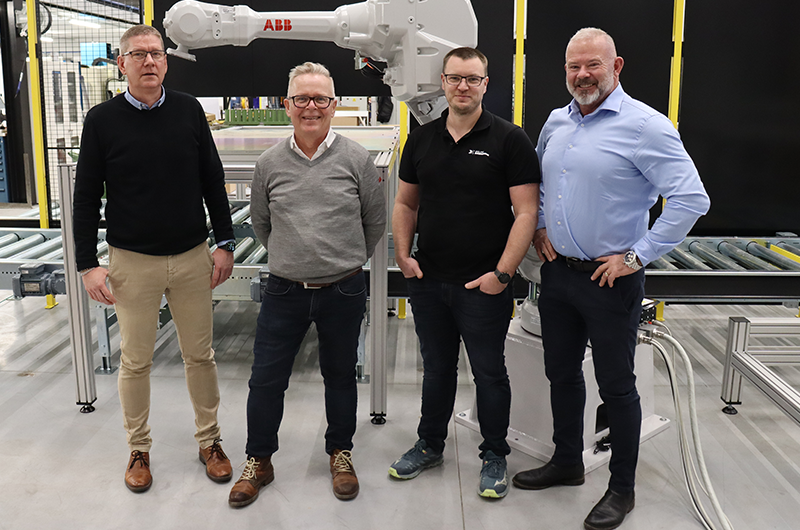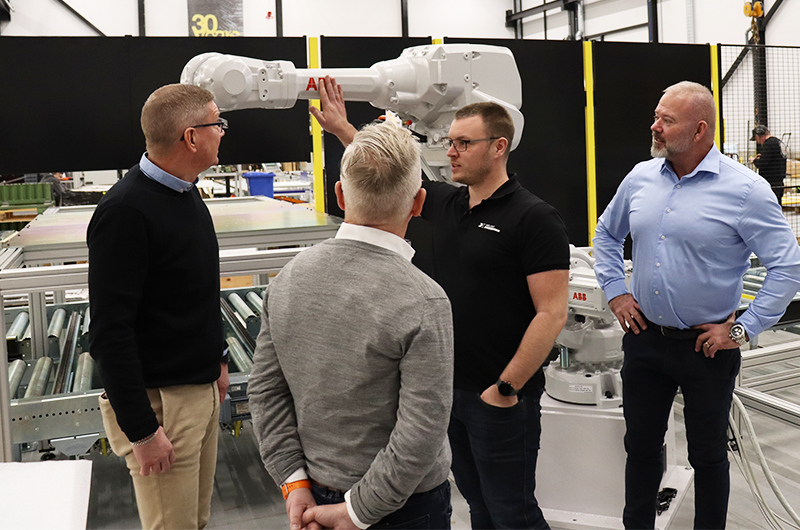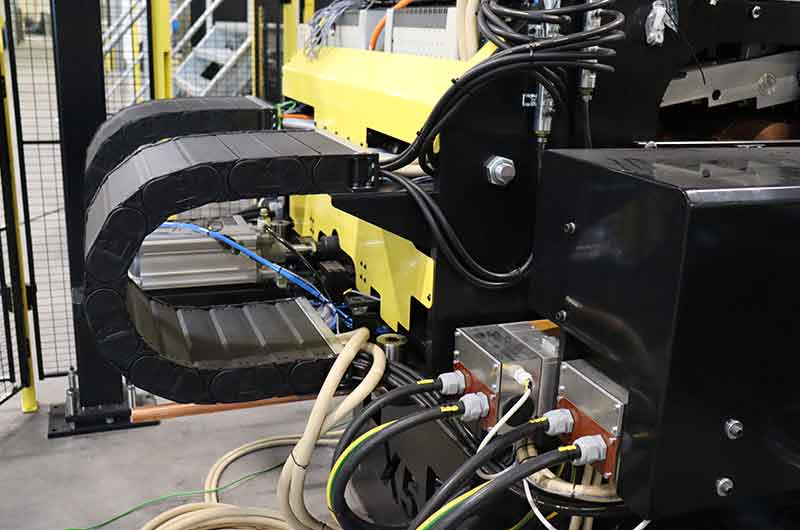ABB Robotics and Axelent Engineering work together for the best possible automation soloutions
ABB Robotics is one of Axelent Engineering’s far-reaching partners and suppliers when it comes to industrial robots. We have met Nicklas Hallan, Partner Manager and Peter Wik, Sales Manager, from ABB Robotics together with Jesper Bundgaard and Karl Liljedahl from Axelent Engineering to look back at what we have done together but also look forward to what trends, visions and challenge we see in the future.

ABB is a global leader in electrification and automation, enabling a more sustainable and resource-efficient future. The company’s solutions connect technical knowledge and software to optimize how things are made, moved and operated. Building on more than 130 years of experience, ABB’s ~105,000 employees are committed to pursuing innovations that accelerate industrial transformation. Axelent Engineering works primarily with ABB Robotics, which since the mid-70s has delivered robots to industry in all areas and segments.
ABB Robotics has a close and active collaboration with system integrators that integrate the robots into an application, where Axelent Engineering is one of these.
Nicklas Hallan is responsible for the Swedish and Norwegian market at ABB Robotics in terms of system integrators and cooperation. Peter Wik is locally responsible for the contacts with our integrators and end customers.
– For me it is important to ensure that we give our system integrators the support they need so they can offer their customers the absolute best automation solutions. It is the system integrators who add value to our products, for example by building a complete system adapted to the customer’s application,” says Nicklas.

– For ABB Robotics, system integrators are essential to take our robots and integrate them into solutions where the integrator is a specialist in a particular application or segment. “It is of the utmost importance to us that the work performed is of the highest quality and with the right skills,” says Peter Wik.
Axelent Engineering and ABB Robotics can look back on many delivery projects they have collaborated on, for example with customers such as Thule and Husqvarna. In these projects, we have delivered automation that has taken the customers to a more productive manufacturing.
Karl and Jesper from Axelent Engineering agree on a well-functioning cooperation, where both sides learn a lot from and about each other during the various projects and how the cooperation runs as efficiently and smoothly as possible. In most cases, ABB Robotics does an initial groundwork to identify which system integrator is best suited for the project and what needs and requirements exist before handing over to a system integrator and partner.
One of the major advantages of this collaboration is a local presence, but also a greater breadth of expertise and a large network. ABB Robotics is represented all over the world and this provides a wealth of experience and expertise that all ABB Robotics system integrators can benefit from. Many customers see the value in working with a local integrator because of the local and regional proximity.
– With today’s technology we can collaborate on how to visualize the projects, which is also a benefit that customers appreciate. For example, today we can be at the forefront of showing the customer a “digital twin” of their production line using VR technology and Robot Studio, ABB Robotics’ leading planning and programming software. With VR glasses, the customer get the feeling of walking around the production line and see what it will actually look like in a more three-dimensional way. “It becomes an extra dimension in the projects, to actually be able to show a production line in this way,” says Karl Liljedahl, automation manager at Axelent Engineering.
Visions and challenges in the industry of the future
In particular, both ABB Robotics and Axelent Engineering recognize the need to build resilience as disruption and uncertainty force companies to think differently about how they operate. Robots are increasingly helping companies to build resilience by providing scalable and flexible solutions that can handle an increasing number of tasks.
Flexibility is a key trend that allows companies to quickly adapt processes to changing consumer demands – scaling up and down production as needed. For example, from high volumes of standard products to lower volumes of more customized products. As robots become more flexible, they also become easier to use, increasing the number of applications for robotics. New industries are emerging, such as logistics, healthcare and electric vehicle manufacturing, and we are also seeing examples of increasingly collaborative robots.
With a global labor- and skills shortage, the need for automation will increase significantly in the future. An ageing population combined with an unwillingness to take on boring, dirty and dangerous jobs means that more companies are turning to automation as a way to bridge the labor shortage. Therefore, greater efforts must be made to equip the workers of today and tomorrow with the skills needed to thrive in a new era of automation. Everything from working closely with secondary education and other local technical education to motivating with investments in scholarships as an example. This close cooperation will be crucial to attract and train the workforce of the future for the industry.


